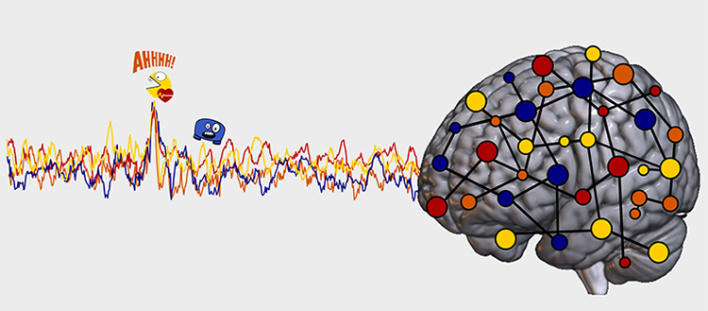Neuroscientists Use Pac-Man Style Video Games To Study The Origin Of Human Emotions
As the University of Geneva press release explains, "Emotions are complex phenomena that influence our minds, bodies, and behavior." This complexity makes emotions challenging to understand and study. Previously, theories "have attempted to model the emergence of an emotion, although none has so far been proven experimentally." Moreover, experiments relating to emotions were more "targeted," such as showing a volunteer an image or video to try and extract emotion from a specific area of the brain. "The problem is, these [neural] regions overlap for different emotions, so they're not specific," as one area of the brain, says Joana Leitão, a post-doctoral neuroscience fellow at the university. On the other hand, video games can evoke emotions and target different areas of the brain at one time, making them a viable candidate for experimentation with volunteers.

Once the study was complete, the researchers could conclusively state that emotions are created when different brain components work in parallel to create an emotional state. This finding "validat[es] the idea that emotion is grounded in action-oriented functions in order to allow an adapted response to events." While there could be more happening inside the brain when emotions are created, we now have a base understanding of the 'why' emotions happen, and thanks to video games, no less. My mom always said video games were bad for my brain, but maybe they were just making me more emotionally developed.


